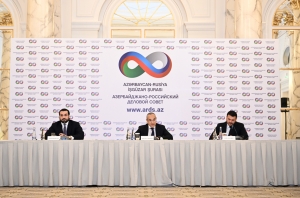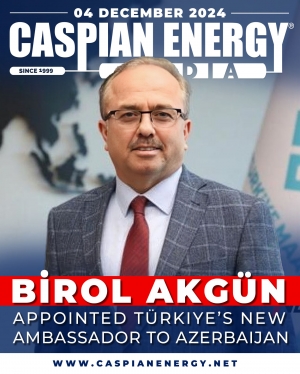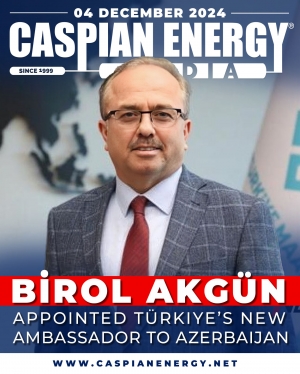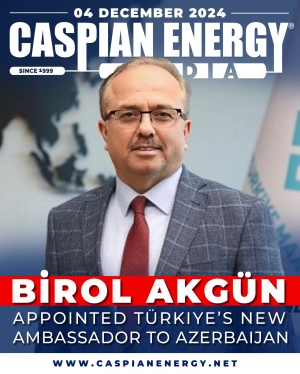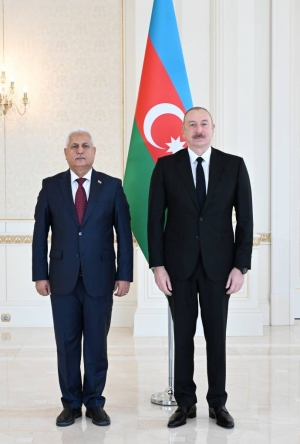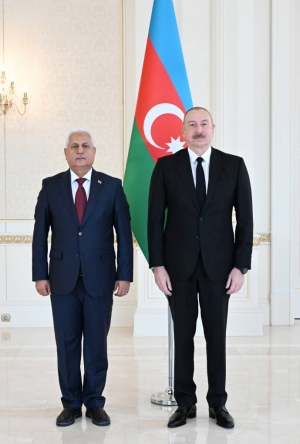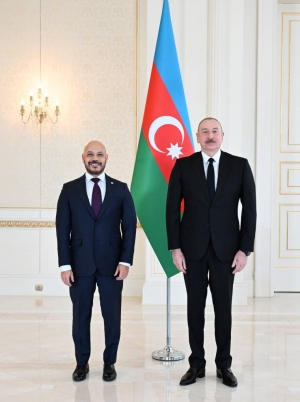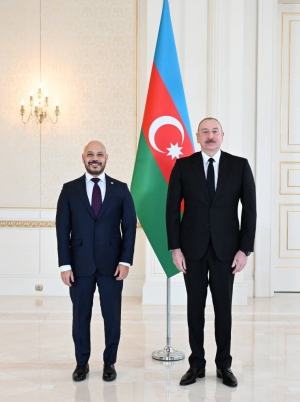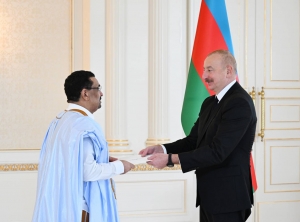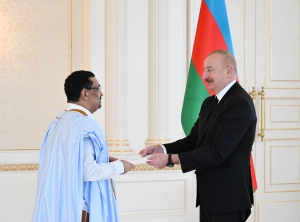Super User
Azərbaycan – Rusiya İşgüzar Şurasının iclası keçirilib
Bakıda Azərbaycan – Rusiya İşgüzar Şurasının növbəti iclası keçirilib. Tədbirdə rəsmi şəxslərlə yanaşı, Şuranın iqtisadiyyatın müxtəlif sahələrində, o cümlədən kənd təsərrüfatı, maşınqayırma, neft-kimya, bank sektoru, logistika və digər sahələrdə fəaliyyət göstərən 90-dan artıq qurum və təşkilat üzvü iştirak edib.
İki ölkənin biznes dairələri tərəfindən yaradılmış Azərbaycan – Rusiya İşgüzar Şurasının fəaliyyəti barədə məlumat verən Səməd Qurbanov qurum tərəfindən iki ölkə arasında ticarət və işgüzar əlaqələrin inkişafı, Azərbaycan biznes ictimaiyyətinin maraqlarının dəstəklənməsi istiqamətində görülən işlər barədə danışıb.
İclasın gündəliyinə uyğun olaraq, Şuranın İdarə Heyətinə seçkilər keçirilib, Azərbaycan – Rusiya İşgüzar Şurasının İdarə Heyətinin sədri “Agalarov Development” şirkətinin təsisçisi Emin Ağalarov, sədrin müavinləri isə AZPROMO-nun icraçı direktoru Yusif Abdullayev və “Nardaran Invest” MMC-nin direktoru Qəmbər Bənənyarlı seçiliblər.
Bu barədə “Caspian Energy Media” İqtisadiyyat nazirliyinə istinadən xəbər verir.
Türkiye appoints new Ambassador to Azerbaijan
Türkiye has appointed a new ambassador to Azerbaijan.
Birol Akgun has been appointed as Türkiye's Ambassador Extraordinary and Plenipotentiary to Azerbaijan. He was previously the chairman of the Turkish Education Foundation.
“Caspian Energy Media” reports with reference to the Anadolu Agency.
Türkiyə Azərbaycana yeni səfir təyin edib
Türkiyə Azərbaycana yeni səfir təyin edib. Birol Akgün Türkiyənin Azərbaycandakı fövqəladə və səlahiyyətli səfiri təyin edilib.
Bu barədə “Caspian Energy Media” "Anadolu" Agentliyinə istinadən xəbər verir.
Турция назначила нового посла в Азербайджане
Турция назначила нового чрезвычайного и полномочного посла в Азербайджане.
Новым послом Турции в Азербайджане стал Бирол Акгюн. До этого назначения он занимал должность председателя Турецкого фонда образования (Türkiye Maarif Vakfı).
Об этом сообщает “Caspian Energy Media” со ссылкой на агентство «Анадолу».
Ilham Aliyev received credentials of incoming ambassador of Yemen
President of the Republic of Azerbaijan Ilham Aliyev received the credentials of Mohammed Saleh Ahmed Turaik, the newly appointed Ambassador Extraordinary and Plenipotentiary of the Republic of Yemen, on December 3.
“Caspian Energy Media” reports with reference to the official website of the President of Azerbaijan.
Ильхам Алиев принял верительные грамоты новоназначенного посла Йемена в Азербайджане
3 декабря Президент Азербайджанской Республики Ильхам Алиев принял верительные грамоты новоназначенного чрезвычайного и полномочного посла Йеменской Республики в нашей стране Мухаммеда Салеха Ахмеда Турига.
Об этом сообщает “Caspian Energy Media” со ссылкой на официальный сайт главы Азербайджанского государства.
Ильхам Алиев принял верительные грамоты новоназначенного посла Эль-Сальвадора в нашей стране
3 декабря Президент Азербайджанской Республики Ильхам Алиев принял верительные грамоты новоназначенного чрезвычайного и полномочного посла Республики Эль-Сальвадор в нашей стране Энрике Хайме Кальдерона.
Об этом сообщает “Caspian Energy Media” со ссылкой на официальный сайт главы Азербайджанского государства.
Ilham Aliyev received credentials of incoming ambassador of El Salvador
President of the Republic of Azerbaijan Ilham Aliyev received the credentials of Enrique Jaime Calderón, the newly appointed Ambassador Extraordinary and Plenipotentiary of the Republic of El Salvador, on December 3.
“Caspian Energy Media” reports with reference to the official website of the President of Azerbaijan.
Ilham Aliyev received credentials of incoming ambassador of Mauritania
President of the Republic of Azerbaijan Ilham Aliyev received the credentials of Sid Ahmed El Bekaye Hamadi, the newly appointed Ambassador Extraordinary and Plenipotentiary of the Islamic Republic of Mauritania, on December 3.
“Caspian Energy Media” reports with reference to the official website of the President of Azerbaijan.
Ильхам Алиев принял верительные грамоты новоназначенного посла Мавритании в Азербайджане
3 декабря Президент Азербайджанской Республики Ильхам Алиев принял верительные грамоты новоназначенного чрезвычайного и полномочного посла Исламской Республики Мавритания в нашей стране Сида Ахмеда аль-Бекайе Хамади.
Об этом сообщает “Caspian Energy Media” со ссылкой на официальный сайт главы Азербайджанского государства.




